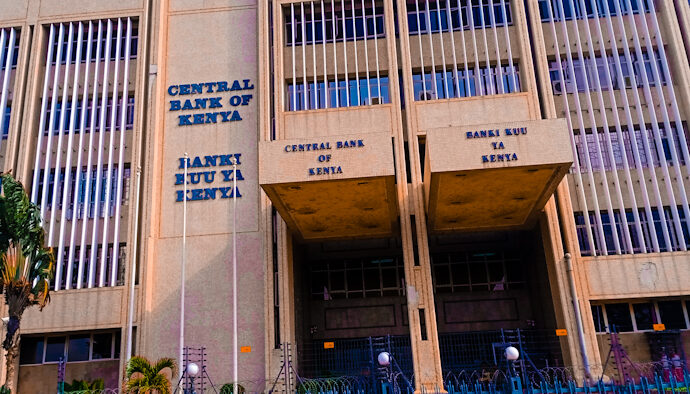-
The economy is expected to rebound strongly in 2021
The Central Bank of Kenya (CBK) kept interest rates unchanged at 7.00 per cent. The regulator said policy measures that have been implemented since March 2020 were having the intended effect on the economy.
This is the sixth time in a row that the Central Bank Rate has been retained at 7 per cent.
The Monetary Policy Committee (MPC) met Wednesday to review the impact of previous monetary policy measures and affirmed that they are being augmented by implementation of the announced fiscal measures in the FY2020/21 Budget.
“The MPC concluded that the current accommodative monetary policy stance remains appropriate, and therefore decided to retain the Central Bank Rate (CBR) at 7.00 per cent.”
Dr Njoroge said the meeting took place against a backdrop of the continuing global COVID-19 pandemic and the measures taken by authorities around the world to contain its spread and impact, and the positive prospects from the available vaccines.
“The MPC assessed the outcomes of its policy measures deployed since March 2020 to mitigate the adverse economic effects and financial disruptions from the pandemic,” he noted.
It further justified that, the inflation rate is expected to remain within the target range in the near term, supported by lower food prices and muted demand pressures.
In addition, it noted that current data estimates the global economy to have contracted by 3.5 per cent in 2020, but is expected to grow by 5.5 per cent in 2021.
“This outlook is supported by the ongoing global rollout of COVID-19 vaccination programs and additional policy measures, particularly in the U.S. However, the outlook remains highly uncertain, partly due to the emergence of new variants of the virus and the reintroduction of containment measures in some economies,” the Central Bank Governor added.
Locally, the leading indicators for the economy point to recovery particularly in the fourth quarter of 2020, from the disruptions earlier in the year.
“This recovery is supported largely by strong performance in the agriculture and construction sectors, resilient exports, and continued recovery in manufacturing and services.”
Exports rebound
The MPC revealed that exports of goods had rebounded, growing by 3.3 per cent last year compared to 2019.
Receipts from tea exports rose by 10.1 per cent in 2020, largely reflecting increased output.
“The volume of horticulture exports also rebounded, growing by 27.7 per cent in 2020 compared to 2019, with the resumption of demand in the international markets and the availability of adequate cargo space,” he added.
The recovery in the volume of flower exports from the sharp contraction in April has been sustained, growing by 37.9 per cent in December 2020 compared to December 2019.
Central bank data indicated that imports of goods declined by 12.5 per cent in 2020 compared to 2019, mainly reflecting lower imports of oil products due to relatively low international oil prices.
“Receipts from services exports remained subdued, reflecting weaknesses in international travel and transport,” Njoroge said. Enditem




